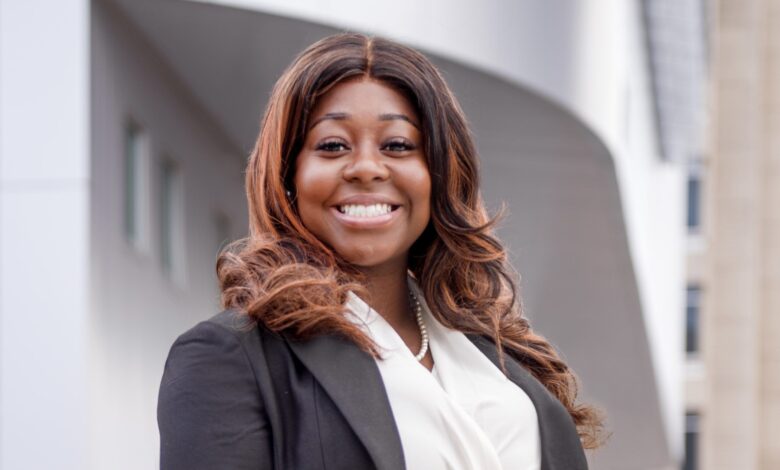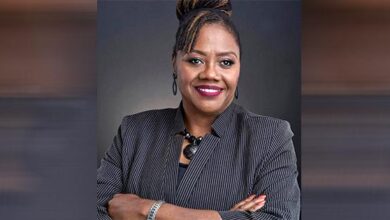How Black entrepreneurship is growing in the Capital Region and beyond

Historically, Black entrepreneurs in the U.S. have had no choice but to navigate an economic landscape marred by systemic barriers to success. From enduring racial disparities to limited access to capital, the ability of Black business owners to fully participate and thrive in the nation’s business sector has for decades been unduly hindered.
But there is reason to believe the tide is turning.
According to Myra Richardson, who serves as chief development officer for the Louisiana Chamber of Commerce Foundation, Black business is booming in Louisiana, following national trends.
“From my personal insights, there has definitely been an uptick in Black businesses across Louisiana and especially here in the Capital Region,” Richardson says.
The numbers back up that claim. National data from the Census Bureau’s Annual Business Survey shows that in 2017, there were an estimated 124,004 Black-owned employer businesses (businesses with more than one employee) in the U.S. By 2020, that number had jumped to 140,918—a 14% uptick.
A similar story is unfolding here in Louisiana. According to the U.S. Department of Commerce’s Minority Business Development Agency, Black-owned businesses employed 53,766 people throughout the state in 2018, an increase of nearly 50% from 2017. The latest data from the U.S. Small Business Administration’s Office of Advocacy shows that the number of Black-owned employer and nonemployer businesses in Louisiana rose from 102,070 in 2021 to 105,570 in 2022. And a February 2023 analysis published by Merchant Maverick rates Louisiana as the sixth-best state for Black entrepreneurs, up from 20th the year prior.
Together, these points of data illustrate a clear trend: Black business owners are establishing a more significant presence in both the local and national economic landscapes. But what exactly is driving this growth, and what does the future of Black business in Louisiana look like?
LEVELING THE PLAYING FIELD
One driver of Black entrepreneurship growth that cannot be overlooked—especially here in Baton Rouge—is the role minority chambers of commerce play in empowering Black business owners.
Locally, the Baton Rouge Metropolitan Black Chamber of Commerce plays that role. Launched in 2018, the chamber has emerged as a steadfast advocate for the interests of Black entrepreneurs in the Capital Region. Many of its achievements in recent years can be at least partially attributed to the leadership of Richardson, who served as its executive director from January 2022 through February 2023. The chamber saw significant growth during that period, surging from 18 members to 400 within a single fiscal year. With a goal of inspiring and cultivating economic success in Greater Baton Rouge, the chamber continues to provide valuable resources and networking opportunities to the region’s Black business owners.
“I think that the hugest gap that a lot of these businesses face is a lack of access to the resources that exist,” Richardson says. “There is a huge number of free resources that these organizations historically didn’t know even existed. A lot of those businesses fell victim to their own ignorance and not knowing what was there to help them.”
According to Richardson, the responsibilities of minority chambers to their local business owners extend well beyond resources and networking.
“I think chambers have a responsibility to help prime the workforce, to work with our universities, and to work with our banks to keep them accountable,” she says. “We have to reimagine what economic development looks like.”
One local business that has directly benefitted from the services offered by the Baton Rouge Metropolitan Black Chamber of Commerce is Scenic Market, a grocery store on Scenic Highway. The neighborhood that the store is located in is considered by many to be a “food desert,” or an area that has limited access to affordable and nutritious food.
“A lot of people here don’t have vehicles, and they needed somewhere they could walk because the nearest dollar store is 3 miles up the road,” says Khaliel Kinchen, the grocery store’s owner. “This used to be a store when I was a kid, and we really just wanted to bring it back. There were a few obstacles, but we overcame those, and now we’ve been up and running for three years.”

When Richardson learned about Scenic Market through social media, she was quick to visit the store and offer the chamber’s assistance—the beginning of a relationship that Kinchen says has been very fruitful for his business.
“The chamber gave us a lot of exposure,” he says. “They helped us get exposure with the news, they supported us with our grand opening, and they connected us with a lot of political leaders like Mayor [Sharon Weston] Broome and the council people. They really helped us raise the profile of our small business.”
While success stories like that of Scenic Market are becoming more common in Baton Rouge, Richardson says it is important that the local business community avoids becoming complacent.
“As more people decide to become entrepreneurs, there are also less people who come to work at and support those small businesses,” she says. “Most businesses fail within three to five years. They need more resources to stay open.”
FUELING GROWTH
It goes without saying that one of the most important resources for any entrepreneur is access to capital. Without funding, even the best business idea will struggle to reach its full potential. But historically, Black entrepreneurs in the U.S. have faced systemic disadvantages in accessing capital. Minority-owned firms are much more likely to be denied loans than nonminority firms, and minority-owned firms that do receive traditional forms of financing are less likely to receive all the financing they originally sought. These challenges often stem from a lack of assets, lower credit and lower net worth, and they have perpetuated long-standing economic disparities.
For investors like Kenny Welcome, bridging this financial gap has become a mission.
In July 2023, Welcome founded KJW Capital, a New Orleans-based private investment firm that prioritizes providing Black investors with wealth-creating opportunities, often in the form of Black-owned entrepreneurial ventures. And while the firm may be only a few months old, Welcome is no stranger to the industry. Prior to establishing KJW Capital, he served as vice president at JPMorgan Chase & Co. and co-founded its multibillion-dollar Diverse Wealth Initiative.
“I took this leap of faith because I believed that I could help create the generational wealth in the Black community that so many speak about,” Welcome says. “I saw the needs that these companies had, like not having access to capital or not knowing the right questions to ask when getting in front of banks or corporations. I believe that I have the tools necessary to [help them].”
According to Welcome, one of KJW Capital’s main goals is to provide more than just financial capital to clients and investors. What he refers to as “intellectual capital” and “social capital” are every bit as important, he says.
“We try to lead with the intellectual and social capital,” he explains. “Social capital is who you know—the relationships that I’ve built working at some of the top firms on Wall Street over the past decade. Intellectual capital is what I’ve learned working at those firms.”
A Baton Rouge business that recently benefitted from such investment is Suds Laundry Services. In November 2023, the on-demand laundry company was selected as one of 36 finalists for Pharrell Williams’ Black Ambition Prize, receiving $75,000 in funding. Black Ambition is a nonprofit initiative aimed specifically at supporting Black and Hispanic entrepreneurs and closing the wealth gap in venture capital. The finalists will also enjoy continued access to the initiative’s resources and networking opportunities going forward.
“Less than 1% of venture capital goes to Black and brown businesses,” says Christopher Hilliard, Suds Laundry Services’ co-founder and CEO. “It’s because of programs like Black Ambition that I’m able to do what I’m doing, gaining these investments, pouring back into the community, and hopefully inspiring other Black and brown entrepreneurs here in Baton Rouge to do the same.”
Hilliard regularly shares his experiences with young, aspiring entrepreneurs in Baton Rouge through unpaid speaking engagements and church-led events. One of his most common pieces of advice for them? Take advantage of the resources that are right here in the Capital City.
“Take part in accelerator programs,” he says. “Take advantage of the resources that are provided by BRAC, LED, LSU Innovation Park, Nexus Louisiana and the local SBA centers. And stay resilient.”





